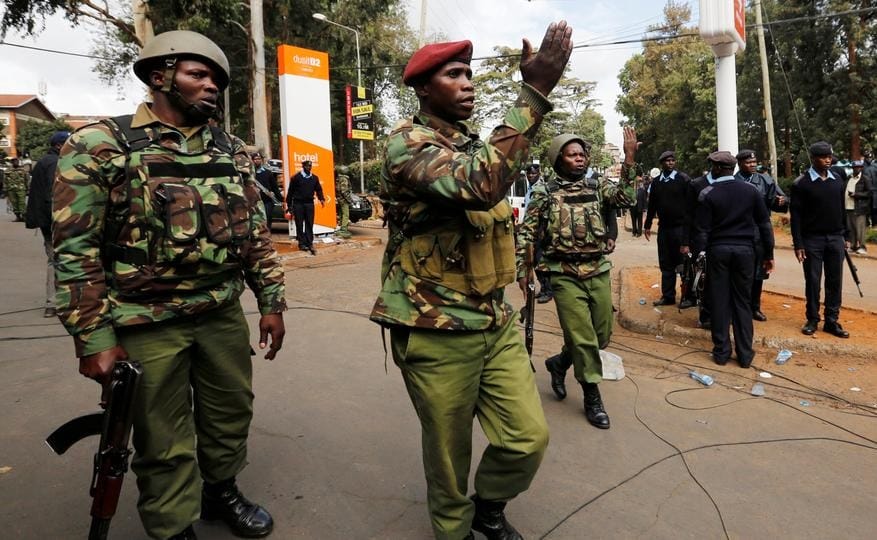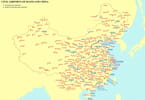After several European countries warned of the risk of possible attacks in Kenya and urged their nationals to avoid public places, Kenya’s National Police Service issued a statement saying that it “assures the public that security in the country has been scaled up through different policing operations.”
“We urge the public to remain vigilant and report any suspicious activities,” the NPS statement said.
Heavily armed law enforcement officers were patrolling the streets of Nairobi today, as the police have beefed up security outside around five-star hotels, restaurants, shopping centers and government offices.
Yesterday, the Embassy of France in Kenya issued a message to French nationals warning of the danger of an attack in Nairobi in the coming days. It said on its website there was a “real risk” of places frequented by foreigners, such as restaurants, hotels and shopping centers, being targeted.
“Therefore, people in Kenya are advised to be extremely vigilant and avoid these public places in the coming days, including this weekend,” it said.
The German embassy in Nairobi issued a similar warning, while the Dutch mission said it had been informed by the French of the possible threat and that it considered the information “credible.”
Kenya has been hit by several attacks waged by the al-Shabab terrorist group in retaliation for sending troops into Somalia in 2011 as part of an African Union forces to beat back the fighters.
In 2019, al-Shabab militants killed 21 people in an attack on the upscale DusitD2 hotel and office complex in Nairobi.
In 2015, an attack on Garissa University in eastern Kenya killed 148 people, almost all of them students. Many were shot point-blank after being identified as Christians.
It was the second bloodiest attack in Kenya’s history, surpassed only by al-Qaeda’s bombing of the US embassy in Nairobi in 1998 that killed 213 people.
In 2013, a disastrous four-day siege at Nairobi’s Westgate shopping center killed 67 people.
IHE Ị GA-Ewepụ na edemede a:
- Yesterday, the Embassy of France in Kenya issued a message to French nationals warning of the danger of an attack in Nairobi in the coming days.
- The German embassy in Nairobi issued a similar warning, while the Dutch mission said it had been informed by the French of the possible threat and that it considered the information “credible.
- After several European countries warned of the risk of possible attacks in Kenya and urged their nationals to avoid public places, Kenya’s National Police Service issued a statement saying that it “assures the public that security in the country has been scaled up through different policing operations.























